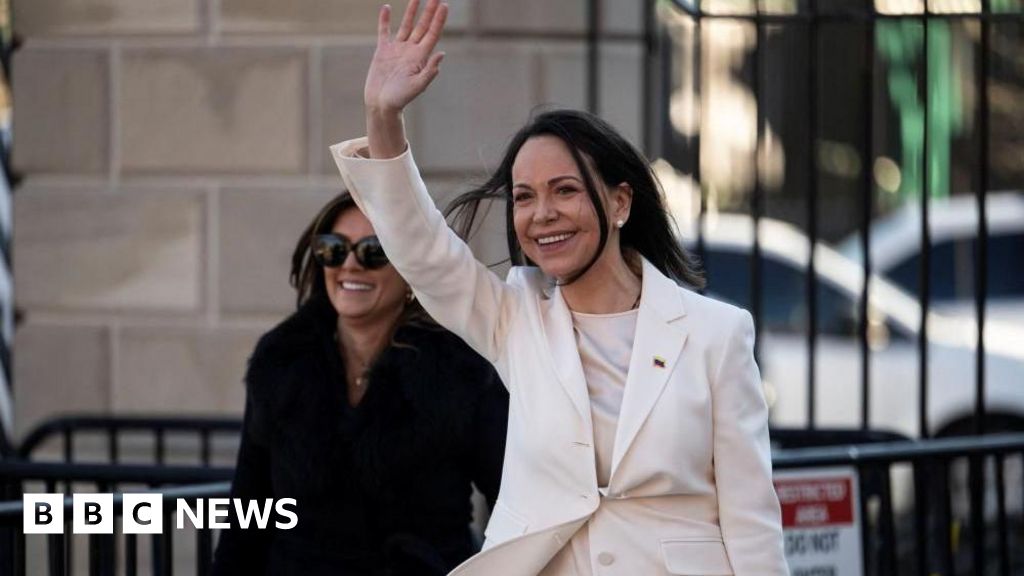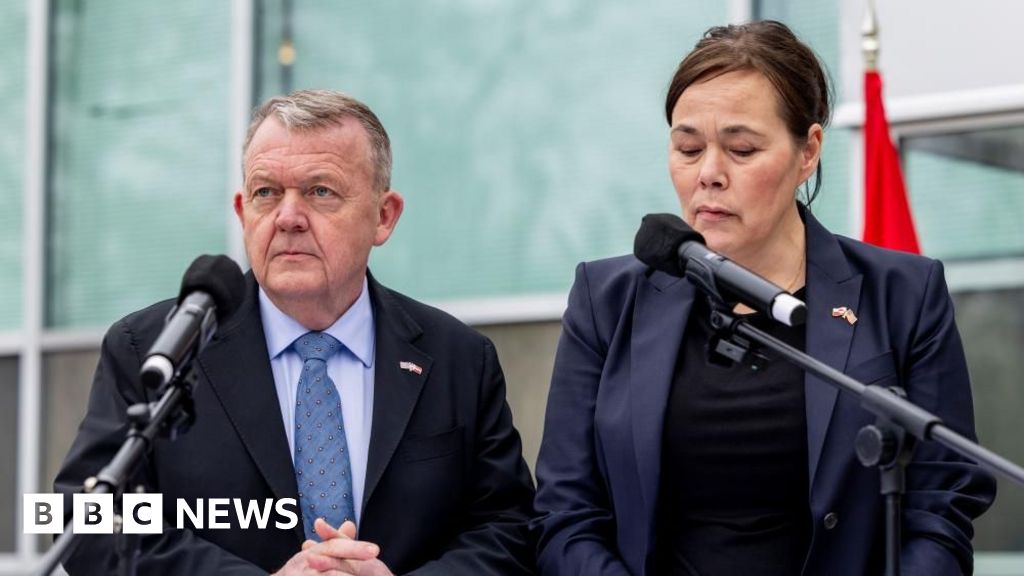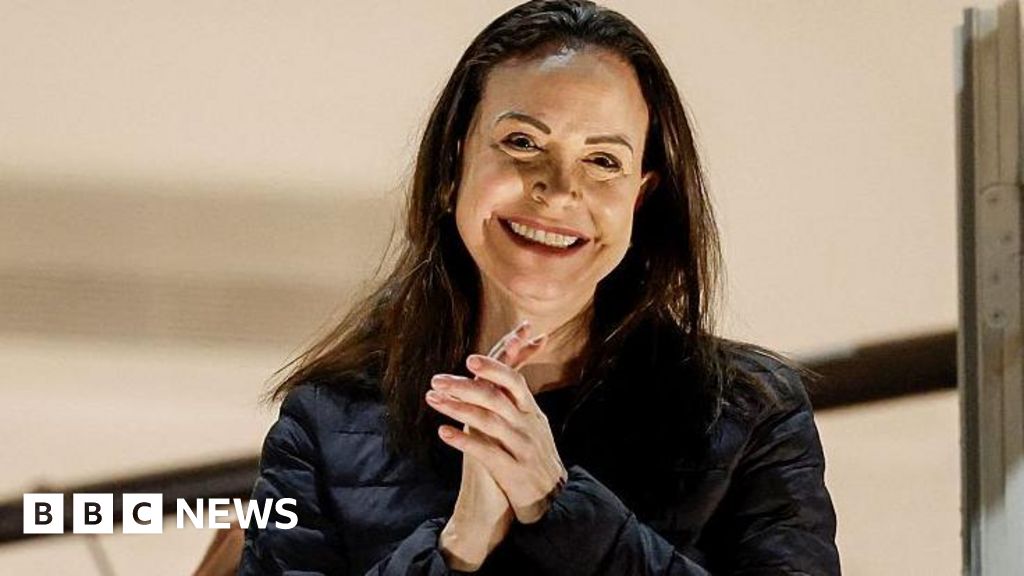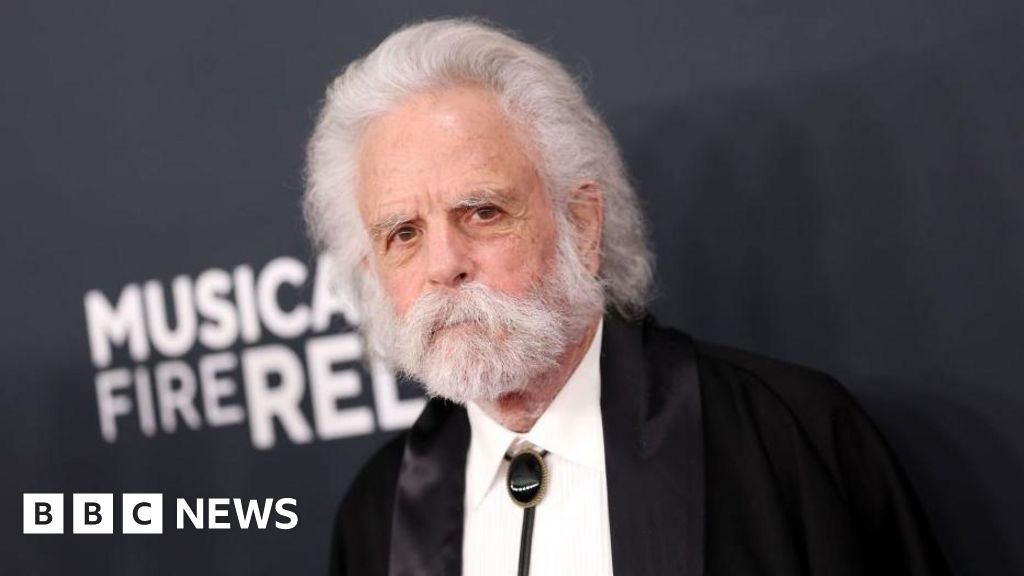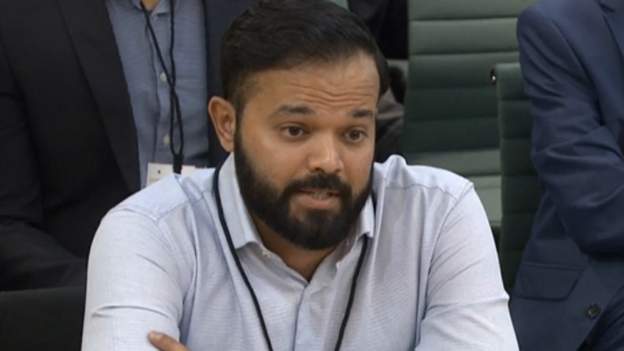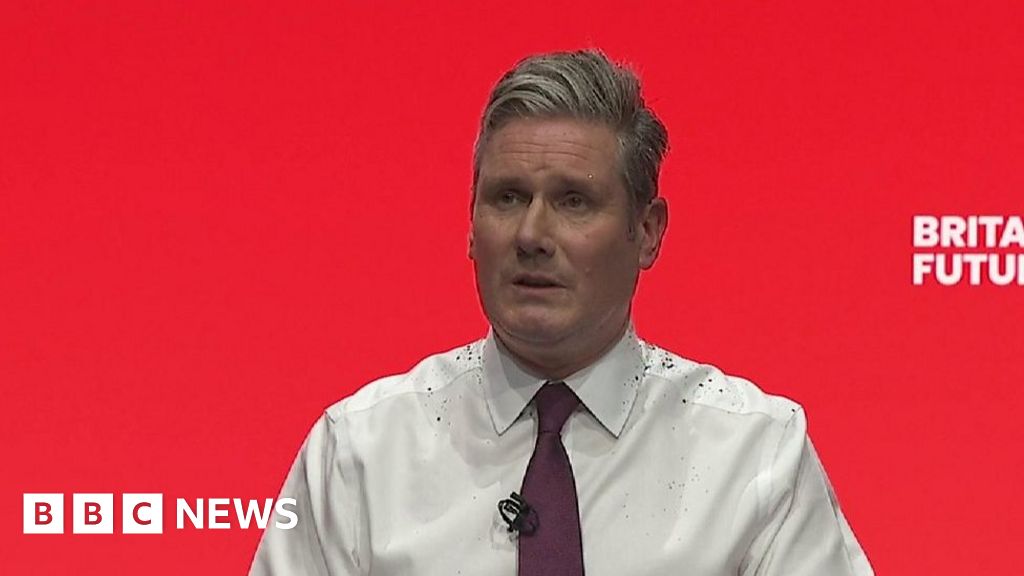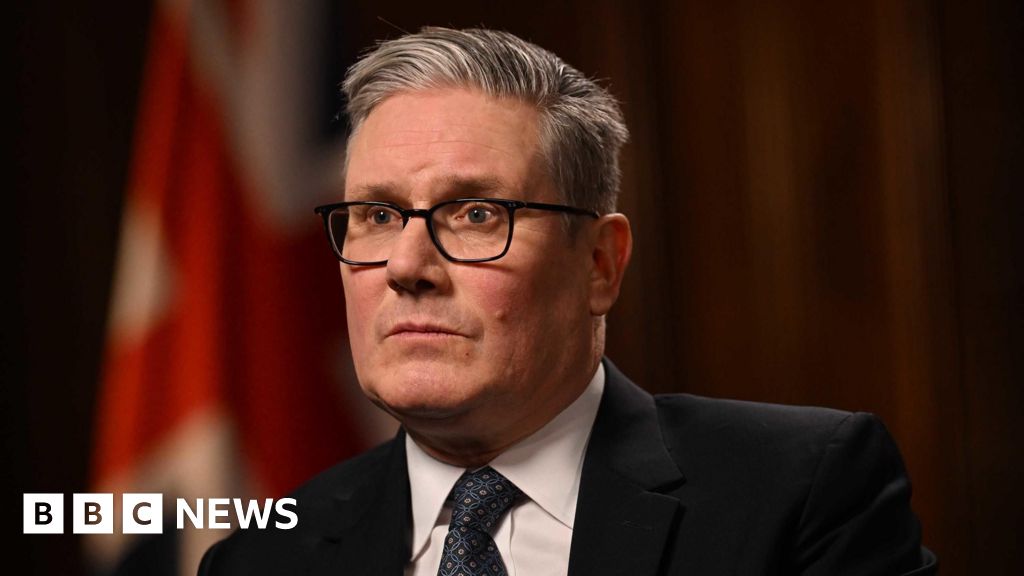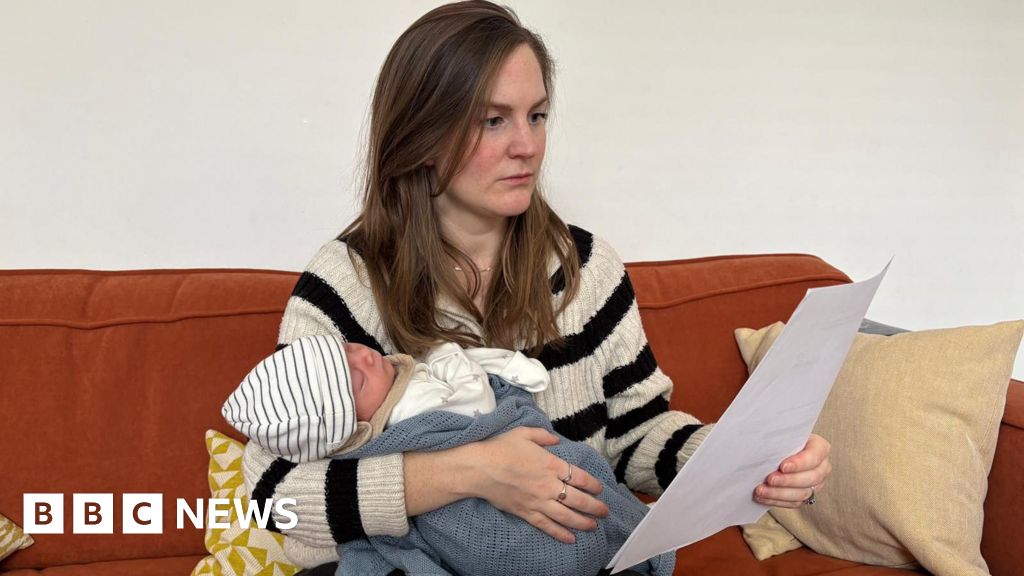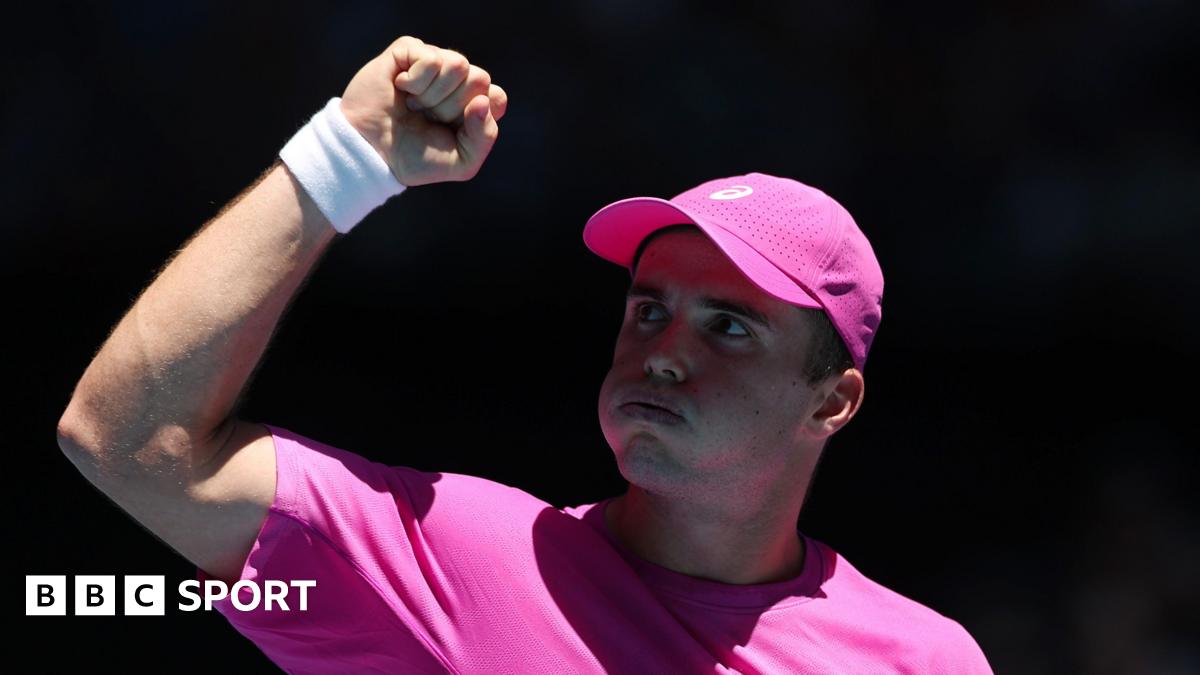The government should limit public funding for cricket unless there is “continuous, demonstrable progress” on eradicating racism, a parliamentary report has recommended.
Azeem Rafiq gave emotional testimony last year to the Digital, Culture, Media and Sport select committee about racism he experienced at Yorkshire.
The committee’s report was published on Friday, with chair Julian Knight MP describing Rafiq’s story as “typical of an endemic problem across the whole of cricket”.
Yorkshire have been widely criticised for their handling of Rafiq’s allegations.
Former chairman Roger Hutton and chief executive Mark Arthur have resigned and 16 members of staff have been sacked.
The committee said changes made by Lord Patel, who replaced Hutton in November, were a positive step but they alone “could not eradicate racism”.
“This is a watershed for cricket,” Knight said.
“Those who love and support the game are part of the solution and must play their part.”
Rafiq welcomed the report, adding that it also made clear the England and Wales Cricket Board (ECB) responsibilities in tackling racism in the sport.
He said: “The committee has listened and taken sensible action. It is absolutely brilliant that the Julian Knight and his colleagues on the committee are going to hold the ECB to account.
“This shows just how seriously politicians are taking an issue that too many people in cricket ignored for so long. The committee understands how important it is to clean up the game.
“I’m glad that MPs will monitor any progress, so that the reforms needed to make the sport inclusive to all youngsters can happen soon.”
What does the report say?
Rafiq told the select committee in November that English cricket is “institutionally racist” and racist language was “constantly” used during his time as a player at Yorkshire.
Knight said the MPs had been “shocked” by language used in correspondence they had received following the hearing.
The report also made reference to stories in the media run to “discredit” Rafiq.
“It further established that eradicating racism from the game will be a long and difficult road,” the report said.
“It does not matter if a whistleblower is of perfect moral character but whether the issue raised is valid.
“It is evident to us that there is a deep-seated issue of racism in cricket.”
Knight again praised Rafiq’s courage in speaking out about racism.
MPs also heard from Hutton and representatives from the ECB, including chief executive Tom Harrison, during November’s session.
Harrison said English cricket was nearing an emergency over its failure to address racism, with the governing body subsequently publishing a five-point plan to tackle the issue.
“Public funding for cricket must depend on real leadership and progress by the ECB to tackle abhorrent behaviour,” Knight said.
“The government must make future funding conditional on the game cleaning up its act.
“We put the ECB on notice that we expect regular updates delivered to this committee on progress being made.”
MPs recommended the ECB develop a set of “key indicators” to measure progress and then report back to the committee.
They will also invite Yorkshire and the ECB to give evidence on their progress early in 2022.
Knight told BBC sports editor Dan Roan that the long-term viability of the ECB itself could be questioned if they did not tackle racism.
“Any grants from Sport England or any form of governmental grant should be dependent upon the ECB showing that it has not just established these targets but is actively looking to achieve them,” he added.
“If that also doesn’t happen, we could potentially look at an option down the line of establishing an independent regulator.
“This is a key test of whether or not that should still remain the case.”
What has been the reaction?
Responding to the report, Lord Patel called Rafiq’s testimony “a watershed moment for the sport as a whole” and added that Yorkshire were “committed to ensuring that no-one endures the unacceptable experience that he did”.
A DCMS spokesperson added: “We thank the select committee for its report into the disgraceful treatment of Azeem Rafiq by Yorkshire County Cricket Club and racism in the sport.
“We will now consider the report’s recommendations and take further action if necessary.”
Barry O’Brien, interim ECB chair, said: “We welcome the committee’s recommendations and we also embrace the ongoing scrutiny of the committee. We are determined to root out racism – and other forms of discrimination – from our sport.
“We had already taken important steps to make cricket more inclusive in recent years. We are deeply sorry for the pain people have suffered and recognise the courage it has taken to speak out. We are determined to make cricket a stronger, more welcoming sport.”
Tim Hollingsworth, chief executive of Sport England, said: “The DCMS select committee’s report highlights the powerful need for the ECB, the counties, and other cricketing stakeholders to reform and take action to end structural racism in the sport.
“Sport England’s funding is explicitly linked to the development and implementation of robust diversity and inclusion policies and plans. We have made that clear to the ECB, who have responded positively and constructively.
“Azeem Rafiq’s powerful and personal testimony to the committee shows us that ultimately, the litmus test of progress will be the lived experiences of diverse communities and their involvement in the game. Until experiences like Azeem’s are eradicated, the work to defeat racism in sport must continue.”
How did we get here?
Off-spinner Rafiq, who had two stints at Yorkshire between 2008 and 2018, initially went public with his experiences in September 2020.
Yorkshire launched a formal investigation the same month and received the findings in August 2021.
However, the club did not release the report, despite being asked to by the ECB. They instead released a statemen admitting Rafiq was “the victim of inappropriate behaviour” – something he said was downplaying racism – and offered him their “profound apologies”.
Following further criticism, Yorkshire received a summary of the findings, which said seven of Rafiq’s 43 allegations had been upheld.
They concluded no-one at Yorkshire would face disciplinary action but the club were heavily criticised by pundits and MPs, with a number of sponsors withdrawing from their deals.
Rafiq and other individuals were then asked to speak to the DCMS committee in November.
What are Yorkshire doing to change?
Patel has made a number of changes since taking over at Yorkshire, including setting up a whistleblowing hotline, reviewing procedures and policies at the club and settling an employment tribunal with Rafiq.
In December, 16 members of staff, including director of cricket Martyn Moxon and first-team coach Andrew Gale, were sacked.
Former Yorkshire and England pace bowler Darren Gough has since been appointed director of cricket until the end of the 2022 season, while former England bowlers Ryan Sidebottom and Steve Harmison have joined the coaching staff on an interim basis.
However, the club are still banned from hosting England matches by the ECB.
Patel told BBC Sport on Wednesday he was confident the ban on hosting England matches would be lifted, while Rafiq has also said Yorkshire “deserve” to have games at Headingley.
“In the last two months, Yorkshire have made significant progress in our efforts to rebuild, and I am heartened that the committee considers that there is room for optimism in what we have achieved,” Patel said in a statement on Friday.
“We share that optimism and have made some real improvements, but we are only at the start of this long and important journey.
“Azeem Rafiq’s testimony was a watershed moment for the sport as a whole, and we are committed to ensuring that no-one endures the unacceptable experience that he did.”


